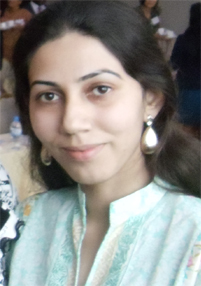Iram Shahzadi lives with her family in Bahawalpur. Her father is blind, her mother is suffering from a serious kidney disease, and her siblings have either moved away or are younger than her. This combination makes earning even basic livelihoods for the family a huge challenge. As a result, Iram dropped out of school 7 years ago to run the family shop full-time instead. She handled all matters of the shop, even transporting produce from the market to their shop on her bicycle every morning. This was a very bold move on Iram’s part, as she lives in a society where girls are supposed to stay at home and especially not supposed to travel on bicycles.
Running a shop is difficult work. You have to deal with all sorts of clients, some aggressive, some rude, and some who are just waiting to take advantage of a young girl. This is why Iram’s story is truly a #HearMeToo case. She knew her responsibilities and let nothing, not even the dangers of being a young female entrepreneur, deter her. She challenged stereotypes, she stayed focused and she proved her worth.
Despite her success, Iram knew that the income she earned from her shop was still minimal. She needed to think bigger: to find means to support and empower her entire family in a sustainable way. She learned that the way to ensure a good future was by attaining quality education, opening up a world of employment to her that was more sustainable than the shop. She enrolled in second chance education with ITA under the Siyani Sahelian program in Bahawalpur, having missed her chance for formal education. Iram now dreams of working on the operations and logistics side of an established department store in her area, and has ever since been supporting her younger siblings for an education in order to break out from the cycle of poverty and living paycheck-to-paycheck.
Note: Names have been changed to protect the identity of the mentioned persons.
Disclaimer: The views expressed here are those of the authors and do not necessarily represent the views of Idara-e-Taleem-o-Aagahi (ITA)





